by Pastor Mark Erson
Alleluia! Christ is risen!
Upon opening my eyes and while still lying in bed on the morning of Monday, March 16, my mind started to race. Isolating and Social distancing were becoming new words in our vocabulary. Restrictions were just beginning to unfold. And with that unfolding, lots of questions began to join that racing of my mind. How far would they go in changing our daily lives? How long would they be in place? This is Lent, Holy Week/Easter are nearing, will this all be done so that we can celebrate “normally”?
Obviously, I was not alone in my questions. Perhaps, different sections of the country asked them on different days. But we are definitely in this together. We are all discerning and exploring how to be church, the body of Christ, at a time when the body of Christ cannot physically come together in worship, study, mutual support, consolation, and of course, those all-important meetings.
One of the needs that I saw in myself, and assumed for others, was a sense of structure to these days of upheaval that laid ahead. Also, I anticipated a need to keep kindling the hope that is ours in God’s abiding presence. So, I decided to start live streaming morning (9 AM) and evening (4:30 PM) prayer, Monday – Saturday. I have engaged a variety of resources to give a little diversity. It has certainly helped me to start and finish my day in this way. And, from the comments of others, I see that it has been welcomed by others way beyond the members of our parish. It has also reconnected me with folks from various chapters in life. As one who struggled to enjoy online courses at seminary, I have been surprised how connected I feel when I see folks attending the live stream. And then of course, there are many who view as they have time.
Something else that has been very heartening, comforting, and inspiring has been the collaboration that has been going on among colleagues. And, no surprise, it is within our beloved Proclaim cohort that I have seen the most, the best, the most creative, and supportive expressions of collaboration in creating and sharing resources and spiritual support. I am so thankful for this community.
One of my favorite Easter symbols is the butterfly. This year, even while we are celebrating our butterfly-ness through the risen Christ, we also have the opportunity to benefit from gaining a deeper understanding of our cocoon days. I pray that we will hold onto the lessons learned, the collaboration bridges built, the new means of connecting engaged, for the sake of proclaiming the gospel and serving the world as the body of Christ.
Blessings, as you make the most of these cocoon days.
 Mark Erson – (he/him/his) serves St. John’s Lutheran Church in Greenwich Village, Manhattan, NY, as pastor. He is also a theatre artist and award-winning playwright. He is most excited and looking forward to working with Reed Noel on their internship in the coming year.
Mark Erson – (he/him/his) serves St. John’s Lutheran Church in Greenwich Village, Manhattan, NY, as pastor. He is also a theatre artist and award-winning playwright. He is most excited and looking forward to working with Reed Noel on their internship in the coming year.

 We seek community, affirmation, and practice what self-care we can to empower our faltering nerves and exited stumblings. Through it all, the Savior is ever-present, known and unknown, leaving signs for when we are ready to receive them. Beginning with Easter, not ending, we go boldly into the new and unknown, as seekers and receivers. We know we will most certainly miss the face of Jesus when we are grieving or scared, confused or lonely. Jesus will still be there. We will still be loved. God will still, without fail, be working.
We seek community, affirmation, and practice what self-care we can to empower our faltering nerves and exited stumblings. Through it all, the Savior is ever-present, known and unknown, leaving signs for when we are ready to receive them. Beginning with Easter, not ending, we go boldly into the new and unknown, as seekers and receivers. We know we will most certainly miss the face of Jesus when we are grieving or scared, confused or lonely. Jesus will still be there. We will still be loved. God will still, without fail, be working.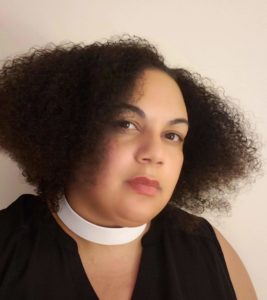 The Rev. Carla Christopher Wilson (she /her/hers) is a redevelopment pastor serving a congregation in Lancaster, PA. Also the co-chair of Lower Susquehanna Synod’s Racial Justice Task Force, Carla is a queer femme Black (and a little Latinx) warrior for justice and equity. A former Poet Laureate of York, PA and a published writer, Carla is passing her quarantine time writing Triduum poetry and cuddling her puppies.
The Rev. Carla Christopher Wilson (she /her/hers) is a redevelopment pastor serving a congregation in Lancaster, PA. Also the co-chair of Lower Susquehanna Synod’s Racial Justice Task Force, Carla is a queer femme Black (and a little Latinx) warrior for justice and equity. A former Poet Laureate of York, PA and a published writer, Carla is passing her quarantine time writing Triduum poetry and cuddling her puppies. Jon Rundquist (he/her/theirs) is a lover of Holy Week, a parent and a spouse, and 2017 MDiv. graduate of Luther Seminary. She’s worked at Target on and off since the end of internship, awaiting her own “what comes next”.
Jon Rundquist (he/her/theirs) is a lover of Holy Week, a parent and a spouse, and 2017 MDiv. graduate of Luther Seminary. She’s worked at Target on and off since the end of internship, awaiting her own “what comes next”. 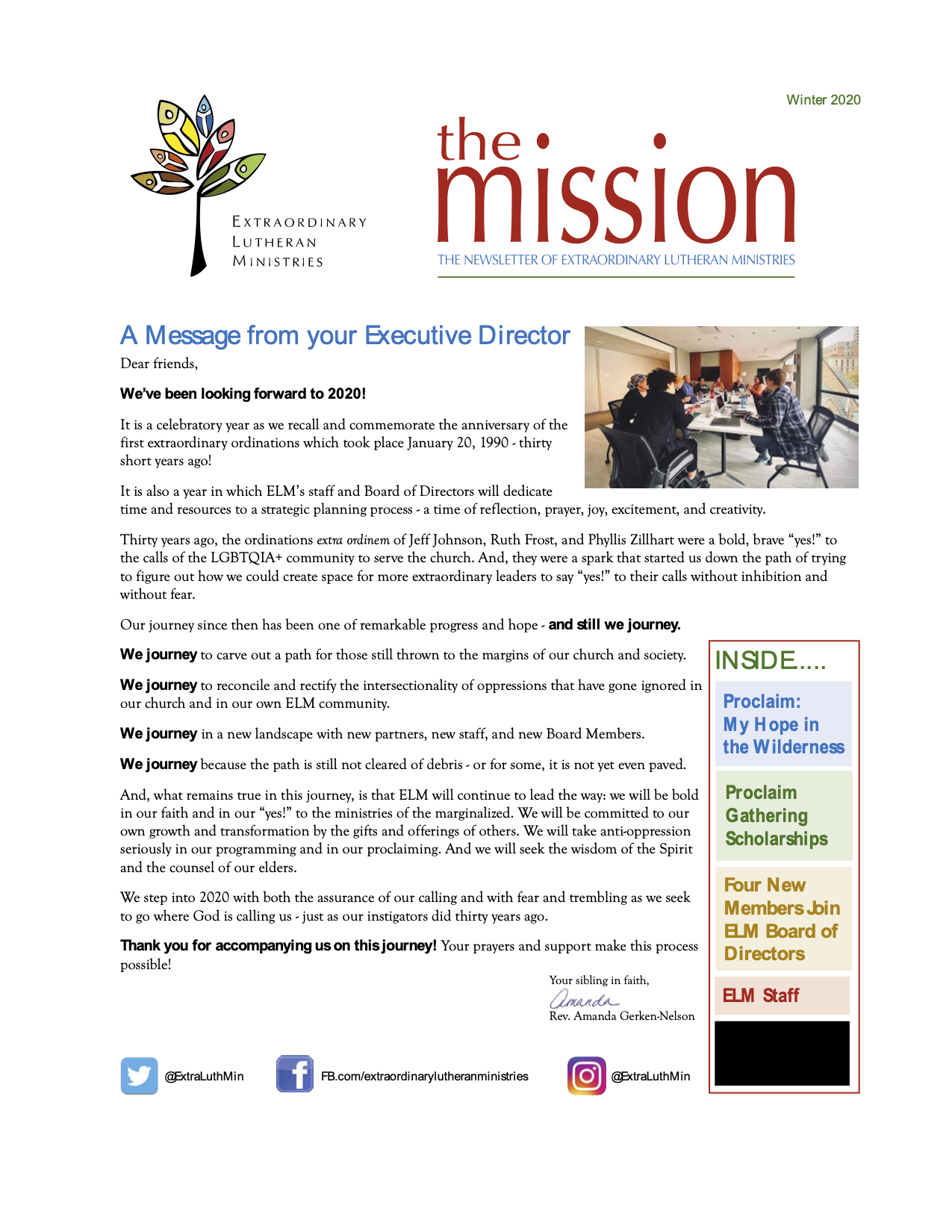

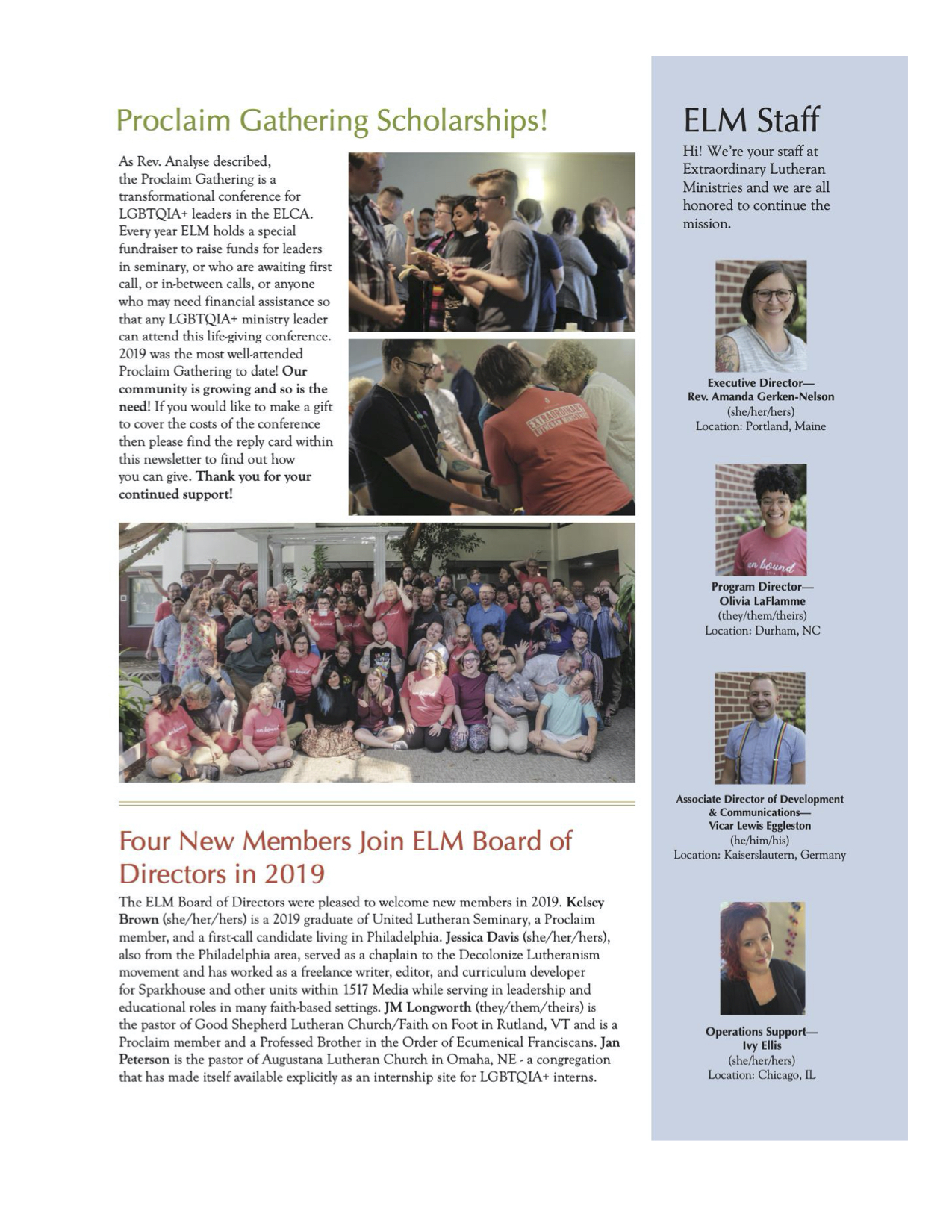
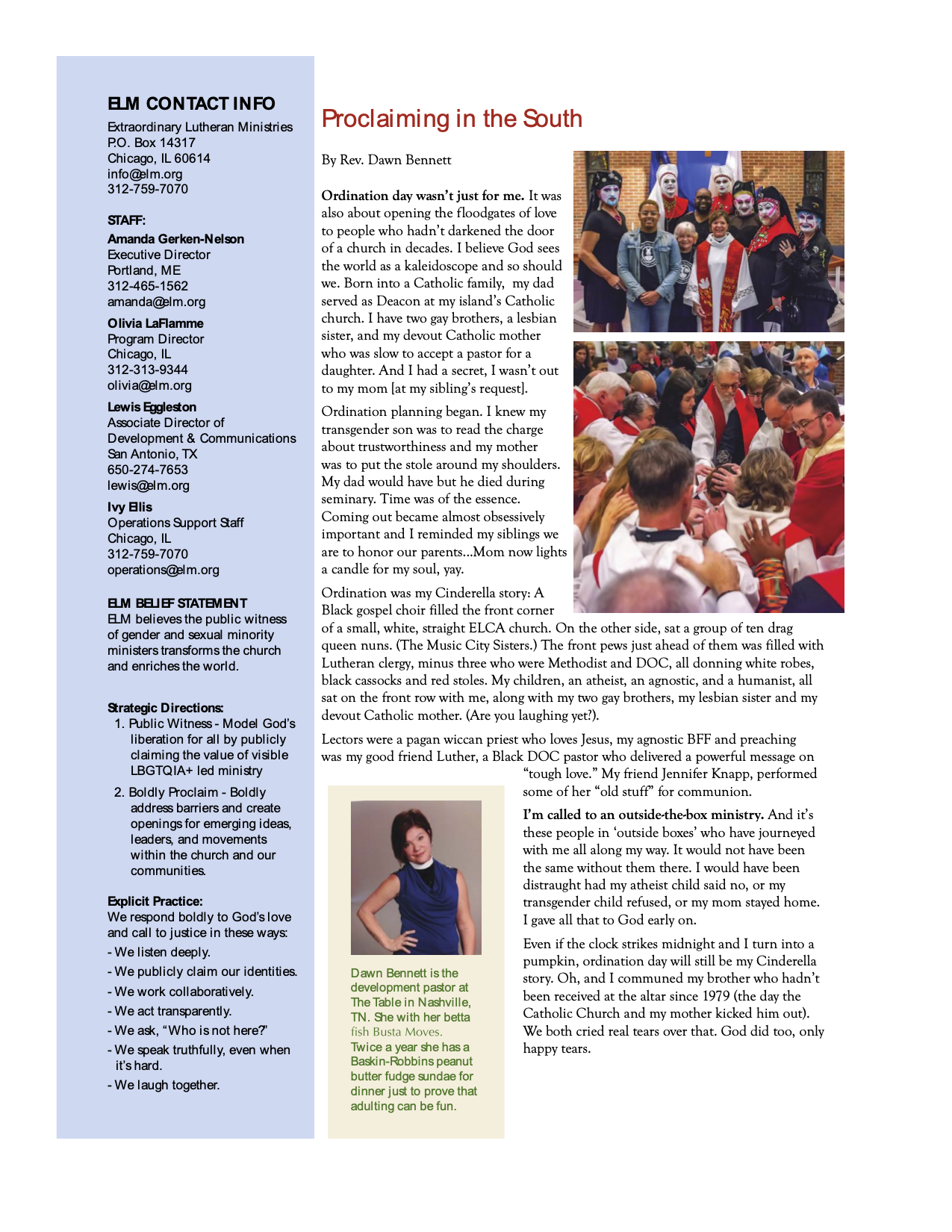
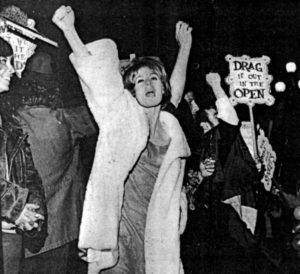
 Elle Dowd (she/her/hers) is a bi-furious seminarian at the Lutheran School of Theology at Chicago and a candidate for ordained ministry in the Evangelical Lutheran Church in America currently serving as the full-time pastoral intern at St. Luke’s Lutheran Church in Logan Square, Chicago. Elle has pieces of her heart in Sierra Leone, where her two children were born, and in St. Louis where she learned from the radical, queer, Black leadership during the Ferguson Uprising. She was formerly a co-conspirator with the movement to #decolonizeLutheranism and currently works as a community organizer with the Faith and Justice Collective and SOUL, writes regularly for the Disrupt Worship Project, and facilitates workshops on gender and sexuality and the Church in both secular conferences and Christian spaces. Elle has interests in queer and feminist Biblical interpretation and liberation and body theology. Elle loves spending time with the people she loves and on weekends, Elle tours the city of Chicago in search of the best brunch.
Elle Dowd (she/her/hers) is a bi-furious seminarian at the Lutheran School of Theology at Chicago and a candidate for ordained ministry in the Evangelical Lutheran Church in America currently serving as the full-time pastoral intern at St. Luke’s Lutheran Church in Logan Square, Chicago. Elle has pieces of her heart in Sierra Leone, where her two children were born, and in St. Louis where she learned from the radical, queer, Black leadership during the Ferguson Uprising. She was formerly a co-conspirator with the movement to #decolonizeLutheranism and currently works as a community organizer with the Faith and Justice Collective and SOUL, writes regularly for the Disrupt Worship Project, and facilitates workshops on gender and sexuality and the Church in both secular conferences and Christian spaces. Elle has interests in queer and feminist Biblical interpretation and liberation and body theology. Elle loves spending time with the people she loves and on weekends, Elle tours the city of Chicago in search of the best brunch. Amanda Gerken-Nelson, (she/her/hers) is social distancing and working from her home in Portland, ME with her wife and their dog. Amanda finds herself turning to the wisdom of prophets like
Amanda Gerken-Nelson, (she/her/hers) is social distancing and working from her home in Portland, ME with her wife and their dog. Amanda finds herself turning to the wisdom of prophets like 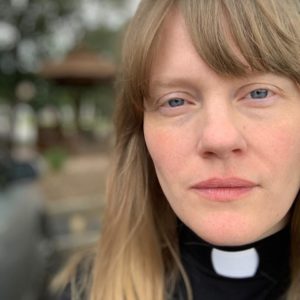 Pastor Anna Gordy (she/ her/ hers) is a resident of San Antonio who grew up in the Deep South and who moved regularly across the continental United States as an adult. She is grateful after a lifetime of searching to finally be able to call Texas “home”. Mother, grandmother(!), artist, spouse, lover, pastor, and friend are her callings, and she believes the call we share is to be neighbor to all the world.
Pastor Anna Gordy (she/ her/ hers) is a resident of San Antonio who grew up in the Deep South and who moved regularly across the continental United States as an adult. She is grateful after a lifetime of searching to finally be able to call Texas “home”. Mother, grandmother(!), artist, spouse, lover, pastor, and friend are her callings, and she believes the call we share is to be neighbor to all the world.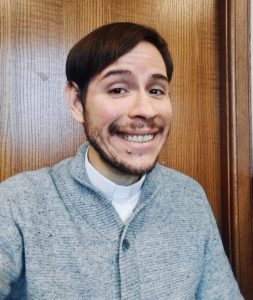 Sergio Rodriguez (he/him/his) is the Pastoral Intern/Campus Minister-(Rice University) at Christ the King Lutheran Church in Houston, TX. He is a final year student at Wartburg Theological Seminary. He is originally from McAllen, TX.
Sergio Rodriguez (he/him/his) is the Pastoral Intern/Campus Minister-(Rice University) at Christ the King Lutheran Church in Houston, TX. He is a final year student at Wartburg Theological Seminary. He is originally from McAllen, TX.